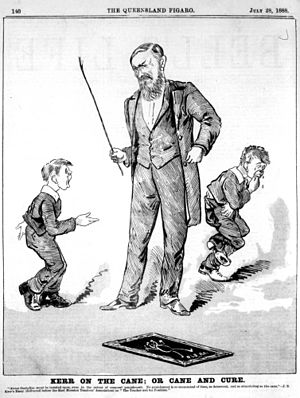A groundbreaking agreement was reached this week in South Florida to end the so-called school-to-prison pipeline. In a remarkable show of cooperation involving 10 county agencies and community organizations, the Broward County Collaborative Agreement of School Discipline was signed on Tuesday.
The new policy at the heart of the agreement creates a procedure for district officials and school resource officers to follow when a student misbehaves. For non-violent misdemeanors such as harassment, trespassing, incidents related to alcohol, possession of a misdemeanor amount of marijuana or drug paraphernalia, administrators will now try to resolve the situation without an arrest. Several alternatives such as participation in a week-long counseling program will be used to deal with such behavior.
The agreement places the responsibility on principals to determine the appropriate disciplinary action for student misbehavior, rather than delegating it to school resource officers. The procedure makes police involvement a last resort.
Marsha Ellison, chairwoman, Fort Lauderdale/Broward Branch of the NAACP and chairwoman of the Juvenile Justice Advisory Board said:
Silly behavior is not criminal behavior, and we have led an effort to make sure the administrators take control of the schools, rather than law enforcement.
Ellison forged a coalition among several agencies to work towards a change in the “zero-tolerance” policy. They include the School Board of Broward County, the Seventeenth Judicial Circuit, the State Attorney’s Office, the Public Defender, the Broward Sheriff’s Office, the Fort Lauderdale Police Department, the Florida Department of Juvenile Justice, the NAACP and the Juvenile Justice Advisory Board.
In the late 1990s, school districts across the country began to bypass other forms of discipline, such as counseling and detention, and opted for more extreme punishment alternatives, such as suspension, expulsion and law enforcement involvement. As a result, hundreds of thousands of students were removed from schools or arrested for minor infractions such as tardiness or throwing candy in class.
Broward County sheriff Scott Israel, who earlier this year unilaterally directed his deputies to invoke a little used state law allowing for “Civil Citation” as a means of reducing the number of juvenile arrests, said: “We’ve done away with the phrase ‘zero-tolerance.’ Kids will now get second, third and fourth chances. Students will not become collateral damage of the way things used to be.”
The agreement signed Tuesday will have a significant impact on black and other minority students, who have been disproportionately affected by the “zero-tolerance” policy, resulting in mass incarceration and creating a vicious cycle for students and their families. This has come to be known as the school-to-prison pipeline.
Broward County Schools, which is the nation’s sixth largest school district, is now a leader in the discipline reform movement. About 100,000 of Broward’s 260,000 students are black, but they have been suspended at more than twice the rate of white students. According to the U.S. Department of Education, Broward Schools imposed in-school suspensions on 11,810 black students in 2009, or about 12% of the black student population. Black students were given 5,135 out-of-school suspensions. In 2010 and 2011, there were more than 1,000 school-related arrests—and nearly three-quarters of them were for non-violent misdemeanors.
Kim Keenan, NAACP general counsel, said:
Broward County has set an example we can use as a template that we can take across the country. Without an agreement like this today, what we have is a world that, instead of focusing on educating our students, we are focused on shipping them off to juvenile detention centers. That’s not what we send kids to school for. We are not training them to be criminals; we are training them to be productive citizens in Florida.
As part of the agreement, Broward schools will continue to establish and implement guidelines for the handling of school-based student misbehavior. The district reported that it has already seen positive results, including a decrease in suspensions by 66.2%, compared to the same time period in 2012. Expulsion is down by 51.4% and school-related arrests have fallen by 40.7%.
“We are going to take this model and run with it,” said Adora Obi Nweze, president of the NAACP Florida State Conference and also the Miami-Dade branch. “The NAACP can take this model in all of our branches and make it their own. We now have the foundation to save a generation of youth of color from the criminal justice system. This would not be possible without the leadership of our Fort Lauderdale/ Broward Branch.”
RELATED ARTICLES

















